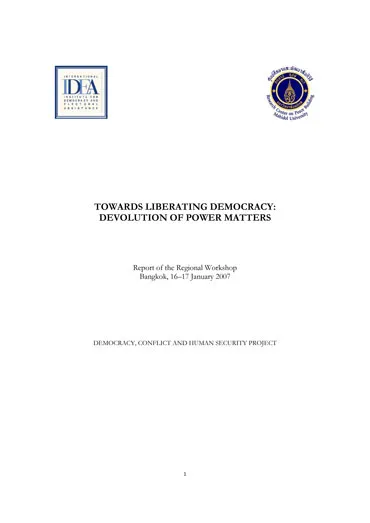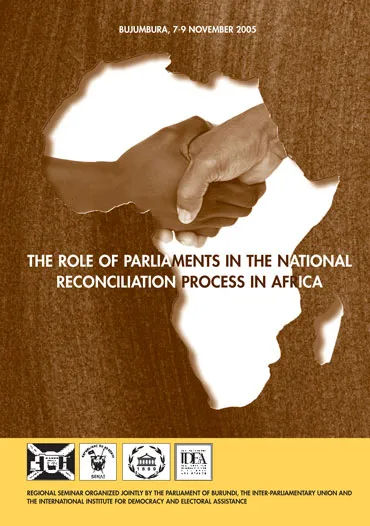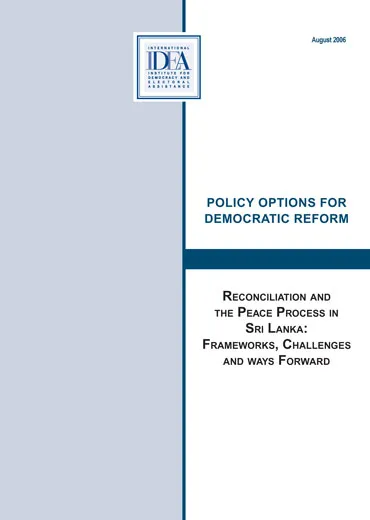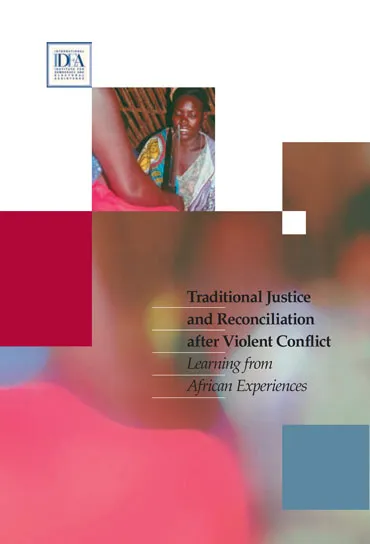Making Reconciliation Work: the Role of Parliaments
An effective parliament is vital to the success of any transition from conflict to peace. Yet in many post-conflict situations, parliament no longer exists or has only recently been restored.
In the latter case, its capacity to respond to the daunting challenges of reconciliation is often limited. A parliament which is truly representative of all components of society and which offers a national platform for a free and open exchange of views, is in itself an important sign that reconciliation is under way. It is also an important factor in consolidating the reconciliation process.
The Inter-Parliamentary Union (IPU) and International IDEA have decided to publish a concise guide to provide some insights into the particular role played by parliaments in countries which have experienced or are going through transition from conflict, and to highlight the pitfalls to be avoided on the road to reconciliation.
Details
Contents
1. Dilemmas of transition
2. Approaches to reconciliation
3. How parliaments can contribute to reconciliation in their countries
4. How other parliaments can contribute to reconciliation
5. Further reading
Give us feedback
Do you have a question or feedback about this publication? Leave us your feedback, and we’ll get back to you
Send feedbackMaking Reconciliation Work: the Role of Parliaments
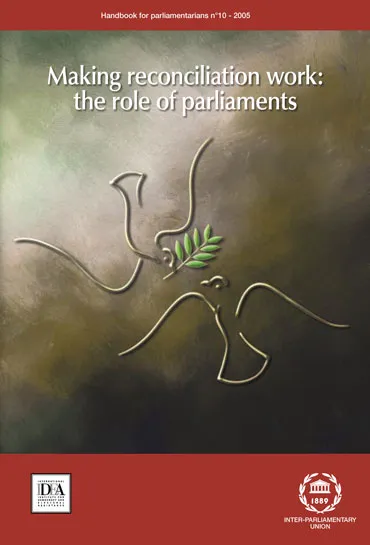
| Total views | 5011 |
|---|---|
| Downloads | 3 |
| Rating |
Give us feedback
Do you have a question or feedback about this publication? Leave us your feedback, and we’ll get back to you
Send feedback